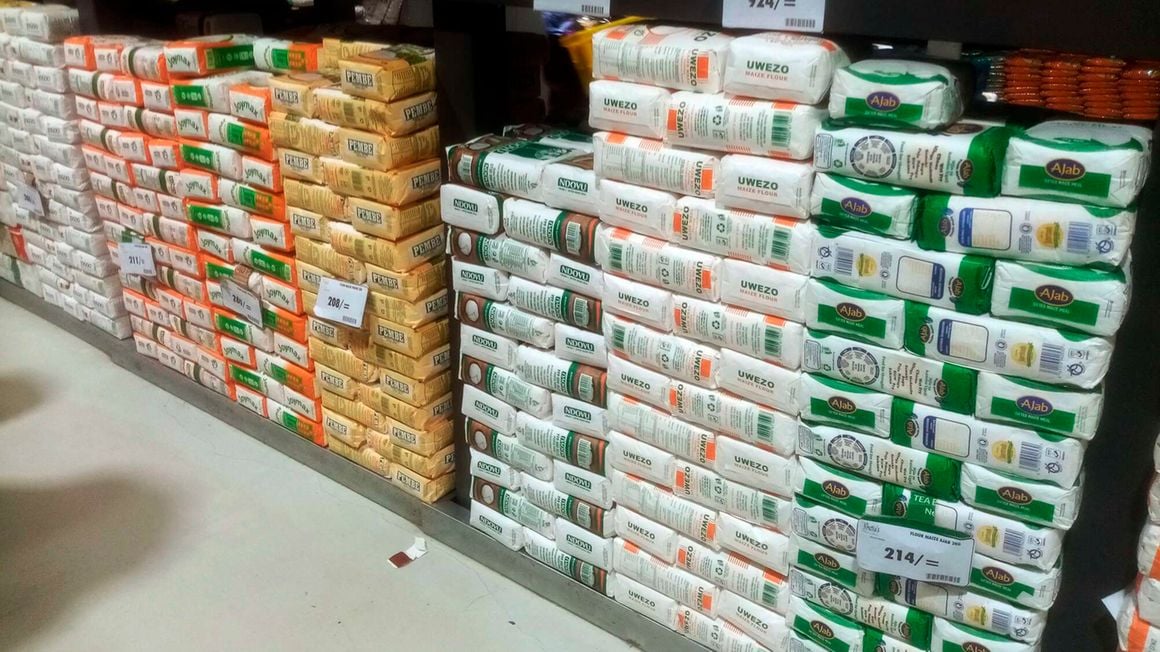Maize flour subsidy debt hits Sh3.4bn

Debts to millers who supplied maize flour under the State’s subsidy last year have hit Sh3.4 billion, pushing some processors out of business even as the government remains adamant on settling the bills.
A special review by Auditor-General Nancy Gathungu notes that as the government delayed payment of the bills to some 116 millers who participated in the programme, interest on the debts had accumulated by about Sh400 million by the end of October.
The government launched the subsidy towards the end of the term of former President Uhuru Kenyatta to arrest high maize flour prices.
Debts to millers who supplied maize flour under the State’s subsidy last year have hit Sh3.4 billion, pushing some processors out of business even as the government remains adamant on settling the bills.
A special review by Auditor-General Nancy Gathungu notes that as the government delayed payment of the bills to some 116 millers who participated in the programme, interest on the debts had accumulated by about Sh400 million by the end of October.
The government launched the subsidy towards the end of the term of former President Uhuru Kenyatta to arrest high maize flour prices.
The actual amount approved for the subsidy was Sh3.367 billion while Sh533 million was to be spent settling pending bills under a similar subsidy in 2017.
“As at the time of the audit, the millers had supplied sifted maize flour valued at Sh6,390,033,525 and were paid an amount of Sh3,366,999,499 leaving a balance of Sh3,023,034,026 as pending bills,” the audit found.
“Document review revealed that millers had unpaid invoices, one year since the programme was implemented. This has negatively affected their maize flour milling operations, especially for small and medium enterprises, leading to the closure of business for some millers.
No provision has been made in the financial year 2023/2024 budget to settle the pending bills for the Programme,” the audit stated.
Auditors were unable to verify claims by four millers valued at Sh173.47 million because they had either discontinued their operations or could not be traced, said the report.
In the contract, the government committed to pay millers for supplied maize flour on the fifth calendar day after submitting the required papers.
“Further, the contract stated that failure by the government to remit the monies on time shall result in the miller having to raise an invoice for interest on the monies outstanding at the government rate of interest, accruing from the first day of default. Analysis of the pending bills owed to the sampled millers indicates that the unpaid amount of Sh2,626,040,768 had accumulated a probable interest of Sh355,055,101 as of October 31, 2023,” Ms Gathungu said.
At least 67 millers confirmed supplying maize flour valued at Sh5.1 billion, out of which Sh2.49 billion was paid, leaving Sh2.6 billion.
The audit also established the subsidy did not lower prices as intended. “This was because the subsidised maize flour was not branded to differentiate it from the nonsubsidised flour, except for one miller, Trident Miller in Nandi County. Consequently, there was alleged hoarding and selling of the subsidised flour at the normal retail price”.
Source Link :- https://www.businessdailyafrica.com/bd/economy/maize-flour-subsidy-debt-hits-sh3-4bn-4467946

















